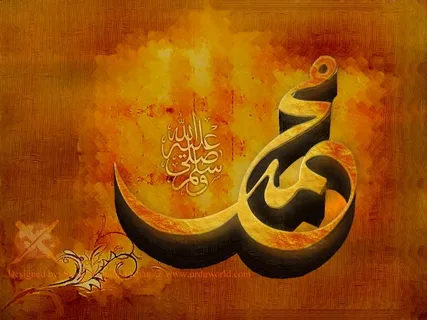Prophet Muhammad (PBUH) is one of the most significant figures in world history, and understanding the events surrounding his life and death is important for anyone interested in Islamic history. His death has been a topic of interest for centuries, with many people wondering what exactly caused his passing. Was it due to natural causes, or did an earlier event, such as being poisoned, play a role? This article delves into what is the cause of prophet muhammad death, exploring the historical and religious accounts surrounding his death.
Life of Prophet Muhammad (PBUH)

Prophet Muhammad was born in Mecca in 570 CE into the Hashim clan of the Quraysh tribe. His early life was marked by hardships, as he was orphaned at a young age and raised by his uncle. At the age of 40, he received his first revelation from Allah, which marked the beginning of his mission as the last prophet in Islam.
Over the next 23 years, Muhammad spread the message of Islam, facing both opposition and support. His life was filled with key milestones, such as the Hijra (migration) to Medina, the Battle of Badr, and the conquest of Mecca. His leadership, teachings, and personal character transformed the Arabian Peninsula.
Final Years of Prophet Muhammad
In the final years of his life, Prophet Muhammad saw the success of his mission with the spread of Islam throughout Arabia. One of the significant moments was the Farewell Pilgrimage, which took place in 632 CE. During this pilgrimage, he delivered his Final Sermon, a powerful message on the unity of Muslims and the importance of following the Quran and his teachings.
Prophet Muhammad’s Illness
Shortly after his return from the Farewell Pilgrimage, Prophet Muhammad began to experience the first signs of illness. Historical accounts suggest that he suffered from a fever, severe headaches, and general weakness. These symptoms lasted for approximately 12 to 14 days before his passing. Despite his deteriorating health, the Prophet continued to lead prayers and interact with his companions.
The Days Leading Up to His Passing
In his final days, Prophet Muhammad’s condition worsened. He sought the care of his wife, Aisha, in whose house he spent the last moments of his life. Even in his weakened state, he continued to give guidance to his followers. He emphasized the importance of treating others with kindness, upholding justice, and remaining steadfast in faith.
what is the cause of prophet muhammad death

The exact cause of Prophet Muhammad’s death has been debated over time. Two primary theories exist regarding the cause:
- Natural Causes: Many scholars believe that the Prophet’s death was due to natural causes, particularly as a result of the fever and illness he had been suffering from. Given his age (around 62 years) and the intensity of his symptoms, it is likely that he passed due to a common illness of that era.
- The Poisoning Incident: Another theory revolves around an event that took place years before his death. After the Battle of Khaybar, a Jewish woman offered the Prophet a poisoned meal. While some companions died after consuming the meal, Prophet Muhammad survived. However, some historians suggest that the effects of the poison lingered and may have contributed to his eventual death.
Was the Prophet’s Death Foreseen?
Several Hadiths suggest that Prophet Muhammad had some knowledge of his impending death. He hinted to his companions on several occasions that his time on Earth was drawing to an end. These prophecies, combined with his delivery of the Farewell Sermon, indicated his awareness of his nearing death.
The Prophet’s Last Words
The last moments of Prophet Muhammad were deeply spiritual. According to Islamic tradition, his final words were, “O Allah, with the highest companion.” This reflects his submission to Allah and his readiness to return to the Creator. His final words are regarded as a testament to his unwavering faith.
How the Muslim Community Reacted to His Death
The death of Prophet Muhammad was a profound shock to the Muslim community. His closest companions, including Abu Bakr and Umar, were deeply affected. Many refused to believe that he had passed. It was Abu Bakr who addressed the community, reminding them that Muhammad was a messenger, and like all human beings, he too would face death.
Burial and Funeral of Prophet Muhammad
Prophet Muhammad was buried in the same house where he passed away, in the chamber of Aisha. His grave remains in the city of Medina, in the Prophet’s Mosque. His burial was simple, reflecting the humility he had practiced throughout his life.
Impact of Prophet Muhammad’s Death on Early Islam
The death of Prophet Muhammad marked the end of prophethood and the beginning of a new era for Islam. His passing led to the appointment of Abu Bakr as the first caliph, establishing the Caliphate. Despite the initial shock, the Muslim community soon rallied around the message and leadership structure he had established.
Lessons from the Prophet’s Life and Death
The life and death of Prophet Muhammad offer numerous lessons for Muslims. His perseverance, humility, and dedication to justice are principles that continue to guide the lives of believers today. His death serves as a reminder that even the greatest leaders are mortal, but their legacy can transcend their physical existence.
Read More: what happened after the death of the prophet muhammad
Common Misconceptions about His Death
Several misconceptions surround the death of Prophet Muhammad. Some claim that he was assassinated, while others believe in more fantastical stories. However, historical records and Islamic teachings emphasize that his death, while possibly linked to earlier events, was part of the natural course of life.
Legacy of Prophet Muhammad After His Death
Prophet Muhammad’s influence did not end with his death. His teachings, preserved in the Quran and Hadith, continue to shape the lives of billions of people around the world. His example of leadership, compassion, and devotion to God remains an inspiration for all.
FAQs
Was Prophet Muhammad’s death due to poisoning?
There is debate over this, but many scholars believe he died of natural causes. Some attribute his death to the lingering effects of an earlier poisoning incident at Khaybar.
What were the last words of Prophet Muhammad?
His final words were, O Allah, with the highest companion, reflecting his submission to God and readiness to meet his Creator.
Where is Prophet Muhammad buried?
He is buried in the Prophet's Mosque in Medina, in the chamber of his wife Aisha.
How did Prophet Muhammad’s companions handle his death?
His companions were initially shocked and in disbelief, but Abu Bakr reminded them that Muhammad was a messenger and, like all humans, would eventually die.
What was the significance of the Prophet’s final sermon?
The final sermon emphasized the unity of Muslims, equality among people, and the importance of following the Quran and his teachings.
Conclusion
The death of Prophet Muhammad was a pivotal moment in Islamic history, but his legacy lives on. Whether through his teachings, his example, or the community he built, the Prophet’s impact on the world is undeniable. By understanding the circumstances of his passing, Muslims can gain deeper insight into the man who changed the course of history.


